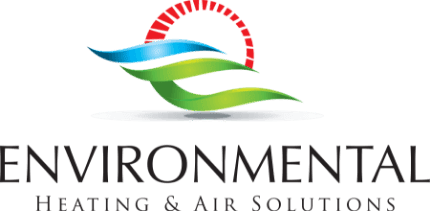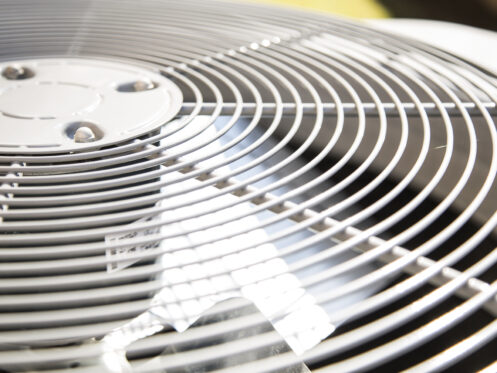Storms can significantly impact HVAC systems, especially if proper precautions are not taken. These weather events can encompass various destructive forces, such as heavy rain, flooding, lightning, hail, and power surges. Each element poses unique risks to HVAC equipment, potentially leading to costly repairs or complete system failure.
Heavy Rain and Flooding
When severe storms bring heavy rainfall, excess water can accumulate around the outdoor unit of your HVAC system. The outdoor unit, typically located on the ground, is susceptible to flooding, especially if installed in a low-lying area that lacks proper drainage.
One of the primary concerns with flooding is water infiltration into the electrical components of the HVAC unit. Water and electricity are a dangerous combination, and if water seeps into the electrical parts, it can cause short circuits or electrical fires. Moreover, the electronic control boards, capacitors, and motors are essential parts of the HVAC system that can be severely affected by water exposure, potentially requiring expensive repairs or replacements.
Heavy rain and flooding can also lead to waterlogged HVAC ducts. Water entering the ductwork can restrict airflow, promote mold growth, and compromise indoor air quality. Mold in the ducts can spread throughout your home when the HVAC system is running, leading to health issues for the occupants.
Lightning Strikes
When lightning strikes a building or its vicinity, the immense electrical energy released can cause a surge in the power supply. The sudden rise in voltage can overload the HVAC system’s circuitry, leading to the malfunctioning or complete failure of electrical components like the thermostat, control board, capacitors, or relays. In some cases, the damage may not be immediately apparent, and the HVAC system could appear to function normally until the faulty components cause a complete system breakdown.
Lightning strikes can also result in damage to the HVAC unit’s compressor. When lightning strikes, the compressor can suffer from internal damage, reducing its efficiency or rendering it inoperable. Repairing or replacing a damaged compressor can be costly.
Hail and Debris
Hailstones can vary in size, ranging from small pellets to large, golf ball-sized chunks. When hail strikes the outdoor unit of your HVAC system, it can cause substantial damage to delicate internal components like fins and coils. Storms can also bring along a barrage of debris, including twigs, leaves, dirt, and even small rocks. Debris can accumulate around the outdoor unit, blocking airflow and impeding the system’s operation.
Power Surges and Outages
Power surges occur when there is a sudden spike in electrical voltage. These surges are often caused by lightning strikes, downed power lines, or utility company issues. Power surges can cause immediate damage to sensitive electronic components in your HVAC system, such as the circuit board, control panel, or compressor.
Moreover, repeated power surges can gradually wear down the HVAC system, leading to premature failure. Storm-induced power outages can cause the HVAC unit to shut down abruptly, leading to potential complications when the power is restored. This can cause a surge when the electricity returns, further endangering your equipment.
Steps to Take if Your HVAC System Is Damaged by a Storm
Safety First
If there was severe flooding or structural damage during a storm, check for electrical hazards or gas leaks. If you suspect a gas leak or see exposed wires, evacuate your home immediately and call emergency services for assistance.
Turn Off the HVAC System
Locate the circuit breaker or disconnect the switch and switch it off. This will help prevent further damage to your HVAC system and reduce the risk of electrical issues when professionals inspect the system.
Assess the Damage
Look for dents, bent fins, loose or disconnected wires, or debris lodged in the system. If the damage is extensive or you notice any unusual smells or sounds, it’s best to refrain from attempting any repairs yourself and call a professional HVAC technician.
Contact a Licensed HVAC Professional
After a storm, HVAC systems can suffer from both apparent and hidden damage. It’s crucial to have a licensed HVAC professional thoroughly inspect your system. At Environmental Heating & Air Solutions, we have the expertise to identify any issues that may not be visible right away and can provide you with an accurate assessment of the damage.
Document the Damage
Take photos or videos of the affected areas, including any visible damage inside and outside your HVAC system. Documenting the damage will be valuable for insurance claims and can aid the HVAC technician in understanding the extent of what has happened.
Notify Your Insurance Provider
Contact your insurance company to report the damage to your HVAC system. Provide them with the documentation that you gathered and follow their guidelines for filing a claim. Keep records of all communications and transactions related to the claim.
Consider Repair or Replacement
Based on the technician’s assessment, you must decide whether repair or replacement is best. In some cases, minor damages can be fixed, but if the system suffers significant damages or is old and inefficient, a replacement might be more cost-effective in the long run.
Storm-proofing Your HVAC System
Elevate Outdoor HVAC Units
If your HVAC unit is on the ground, it’s susceptible to flooding during heavy rain or storms. Contact an AC professional who can put the outdoor unit on a concrete pad or a sturdy platform to prevent water from damaging critical components. They will ensure that the unit is securely anchored to withstand strong winds.
Secure Loose Components
Strong winds can cause loose debris to become dangerous projectiles, potentially damaging your HVAC system. Regularly inspect the area around your outdoor unit and remove any loose objects or debris. Additionally, check the unit for loose panels or parts and tighten them as needed.
Invest in Surge Protection
Install surge protectors for indoor and outdoor HVAC units to safeguard against sudden voltage spikes. A whole-house surge protector can provide comprehensive protection for all your electrical appliances.
Shield From Hail and Debris
Hail can wreak havoc on your HVAC system’s outdoor condenser coils, leading to decreased efficiency and potential leaks. Consider installing a hail guard or protective cover to shield the outdoor unit during severe storms. However, be cautious not to obstruct airflow while covering the outdoor unit. An HVAC professional can advise you as to which cover will meet your needs.
Trim Nearby Trees
Overhanging tree branches can become hazardous during storms, potentially falling and damaging the outdoor unit. Trim back any branches too close to the outdoor unit to prevent such risks. This will also enhance airflow and prevent leaves and debris from clogging the unit.
Regular Maintenance
Proper maintenance is crucial for your HVAC system’s health and optimal functioning, and it becomes even more vital when preparing for storms. You can schedule regular maintenance visits with our licensed HVAC technicians. We will inspect your HVAC system, identify potential issues, clean components, and ensure all components are functioning optimally before the storm hits.
Protect Air Intake and Exhaust Vents
Rain and debris can enter the HVAC system during storms through the air intake and exhaust vents. By installing protective covers or grilles to the outdoor unit, you can prevent water and debris from entering while still allowing proper airflow.
Have a Backup Power Source
Consider investing in a backup power source, such as a generator, if you live in an area that is prone to frequent power outages during storms. A backup power system will keep your HVAC and other crucial household systems running during outages, preventing potential damage from sudden shutdowns or power surges when the electricity is restored.
Reach Out to a Professional
You can trust Environmental Heating & Air Solutions to protect your HVAC system from potential storm damage and ensure its optimal performance year-round. We offer expert advice and services to safeguard your HVAC equipment during storms, helping you understand the risks and implementing preventive measures to minimize potential damage to your system. Beyond storm-related concerns, we provide HVAC maintenance, repairs, and installations. Whether you require routine tune-ups or emergency repairs, our skilled technicians are always ready to assist. Our commitment to excellence and customer satisfaction makes us your reliable choice for all your HVAC needs in Roseville, CA. Contact Environmental Heating & Air Solutions today for more information about our services!

